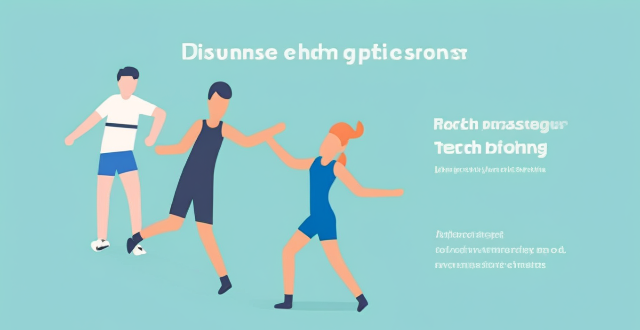The text discusses techniques and strategies in sport psychology counseling, which include goal setting, visualization and imagery, self-talk and affirmations, mindfulness and meditation, and breathing techniques. Goal setting helps athletes stay motivated and focused, while visualization and imagery build confidence and reduce anxiety. Self-talk and affirmations enhance self-confidence and motivation, while mindfulness and meditation improve mental clarity and resilience under pressure. Breathing techniques manage stress, anxiety, and tension. Incorporating these methods into training and competition preparation can help athletes achieve their full potential.

Techniques and Strategies in Sport Psychology Counseling
Sport psychology counseling is a specialized field that focuses on enhancing athletic performance, mental health, and well-being of athletes. It involves the application of psychological principles to help athletes overcome various challenges and achieve their goals. Here are some common techniques and strategies used in sport psychology counseling:
Goal Setting
Goal setting is an essential technique used in sport psychology counseling. It involves helping athletes to identify their goals, break them down into smaller achievable steps, and develop plans to achieve them. Goal setting helps athletes to stay motivated, focused, and committed to their training and competitions.
Key Points:
- Identify specific, measurable, achievable, relevant, and time-bound (SMART) goals.
- Break down larger goals into smaller, manageable steps.
- Develop action plans with clear deadlines and accountability measures.
Visualization and Imagery
Visualization and imagery are powerful techniques that involve creating mental images of successful performances. Athletes are encouraged to imagine themselves performing at their best, experiencing the feelings of success, and overcoming any obstacles or challenges they may face. This technique helps athletes to build confidence, reduce anxiety, and improve their focus and concentration during competitions.
Key Points:
- Create vivid and detailed mental images of successful performances.
- Incorporate all senses (visual, auditory, kinesthetic) in the visualization process.
- Practice regularly, ideally in a quiet and relaxed environment.
Self-Talk and Affirmations
Self-talk and affirmations are techniques that involve using positive statements to enhance self-confidence and motivation. Athletes are encouraged to replace negative self-talk with positive affirmations that reinforce their abilities, strengths, and achievements. This technique helps athletes to maintain a positive mindset, overcome self-doubt, and stay focused on their goals.
Key Points:
- Identify negative self-talk patterns and replace them with positive affirmations.
- Use present tense and first person when creating affirmations (e.g., "I am a strong and skilled athlete").
- Practice repeating affirmations regularly, preferably in front of a mirror or while engaging in relaxation techniques.
Mindfulness and Meditation
Mindfulness and meditation are techniques that involve focusing on the present moment and accepting one's thoughts and feelings without judgment. These techniques help athletes to develop greater awareness of their thoughts, emotions, and physical sensations, which can lead to improved mental clarity, reduced stress, and increased resilience under pressure.
Key Points:
- Start with short sessions (5-10 minutes) and gradually increase the duration as comfort levels improve.
- Choose a quiet and comfortable environment for practice.
- Use guided meditations or mindfulness exercises to facilitate the process.
Breathing Techniques
Breathing techniques are simple yet effective methods for managing stress, anxiety, and tension before and during competitions. Athletes are taught various breathing exercises that help them to relax their bodies, calm their minds, and improve their focus and concentration. Some common breathing techniques include diaphragmatic breathing, belly breathing, and box breathing.
Key Points:
- Practice regular deep breathing exercises to promote relaxation and stress relief.
- Incorporate breathing techniques into pre-competition routines to manage nerves and anxiety.
- Use slow, controlled breaths to maintain composure during high-pressure situations.
In conclusion, these techniques and strategies form the foundation of sport psychology counseling. By incorporating these methods into their training and competition preparation, athletes can enhance their mental toughness, overcome challenges, and achieve their full potential.